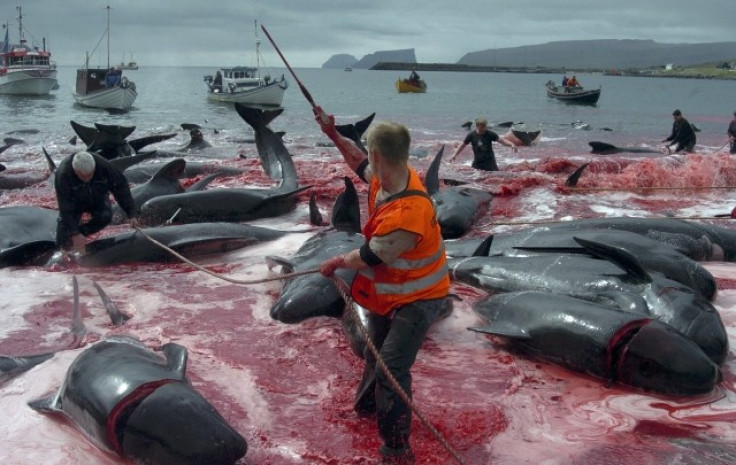Faroe Islands: Up to 50 pilot whales killed in first slaughter of the year
"Whaling is a natural part of Faroese life," said a government spokesperson on grindadráp.

Activists have said that between 30 and 50 pilot whales were slaughtered in the Faroe Islands on 6 July as part of the first grindadráp (Faroese for 'traditional whale hunt') of the year. The Faroe Islands are an archipelago and autonomous part of Denmark, located between Scotland and Iceland.
Wednesday's hunt was the first of the annual series that will see hundreds of whales killed around the islands. Residents see the hunts as an important part of their tradition and culture, arguing that whale meat and blubber are important to Faroese food culture.
The Sea Shepherd organisation said locals spotted a pod of 100-150 pilot whales passing by Svínoy, one of the islands that make up the archipelago. Boats then drove the whales closer to shore and, onto the beaches, before locals killed them.
"Is it exactly these kinds of atrocities that authorities in Denmark and the Faroe Islands are attempting to cover-up, by refusing Sea Shepherd crews entry to the archipelago," said campaign leader, Geert Vons. "This is exactly the reason why we continue to push the increasing global momentum to end this bloody and brutal practice."
Sea Shepherd said that they have had a number of run-ins with local authorities over attempts to halt and document the whale drives. They say in 2015, a Sea Shepherd ship was denied entry to the country "unlawfully" and in 2016 a new law was passed stating they had to get visas before being allowed entry.
As reported by thelocal.dk, government spokesman, Pall Nolsoe, said that the actions of the activists were "illegal and potentially dangerous" and accused them of spreading misleading information: "Whaling is a natural part of Faroese life and pilot whale meat and blubber are a cherished supplement to households across the islands. Whaling in the Faroe Islands is conducted in accordance with international law and globally recognised principles of sustainable development."
© Copyright IBTimes 2024. All rights reserved.






